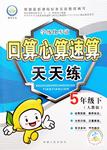题目内容
【题目】阅读下列短文,从每题所给的四个选项(A、B、C和D)中,选出最佳选项。
I wasn't surprised when I read that actress Helen Hunt recently stated that she would never allow her young daughter to become a child star. Ms. Hunt is the daughter of a Hollywood technical director, and grew up in Hollywood. Now in her late 40s, she started acting and modeling when she was eight and has probably seen a lot over those years in show business.
She has had a successful career. She earned four Golden Globes and four Emmys. She also attained the top honor of her profession when she won the Best Actress Academy Award for her role in the 1992 movie, As Good As It Gets. Given those accolades, Ms. Hunt is successful. There is no doubt that her early experiences as a child star prepared her for what has been an outstanding adult career. Given those achievements, why would this star declare she'll never allow her daughter, now at the age of six, to follow in her footsteps?
Everyone familiar with the entertainment scene is aware of the reasons for her attitude. Recent tabloid (小报) news headlines featuring the troubles of former child stars, among them Lindsay Lohan, Britney Spears and the late Gary Coleman, may answer the question. Although Ms. Hunt managed to become a successful grown-up star, she apparently believes she's an exception.
What Ms. Hunt may be suggesting is that many very young stars go through unnatural childhoods on movie and TV sets. While they're earning big incomes, they're so pampered (纵容) by directors and praised by fans; they may get false impressions that their lives will always be that way. Then, within a few years, when faced with reality, they're hurt and confused. After all the overwhelming affection, they find they can't deal with the problems. That's often when drugs and alcohol take over their lives.
Helen Hunt has some other reasons why she doesn't want her daughter to be in the entertainment business. Many child stars can never make a successful transition to meaningful adulthood. However, as with many Hollywood movies, I believe there are both good and bad scenes about how it can be played out in real life.
(1)According to the passage, Ms. Hunt ________.
A.started acting and modeling when she was a little girl
B.has been acting for about 40 years
C.is the daughter of a famous actor
D.started singing when she was eight
(2)The underlined word “accolades” in Paragraph 2 probably means “________”.
A.difficulties
B.awards
C.salaries
D.opinions
(3)The author thinks Helen Hunt's success is mainly due to ________.
A.her hard work
B.the help of a technical director
C.her experiences as a child star
D.her talent and good luck
(4)From the passage we can conclude that ________.
A.few child stars will succeed in the future
B.there is no way to save the entertainment business
C.the author has a different opinion about child stars
D.meaningful adulthood only belongs to non-child stars
【答案】
(1)A
(2)B
(3)C
(4)C
【解析】本文是一篇记叙文,好莱坞女演员海伦·亨特自己由童星出身,但却禁止她的女儿从事表演行业。本文分析了可能的原因。
(1)考查细节理解。根据第一段中的“Now in her late 40s, she started acting and modeling when she was eight...”可知,她在很小的时候就开始表演了,故选A项。
(2)考查词义猜测。根据第二段中的“She also attained the top honor of her profession when she won the Best Actress Academy Award for her role in the 1992 movie...”,以及“Ms. Hunt is successful.”可知,它是“奖项”的意思,故选B项。
(3)考查推理判断。根据第二段中的“There is no doubt that her early experiences as a child star prepared her for what has been an outstanding adult career.”可知,作者认为Helen Hunt的成功在于她从童年开始的经历,故选C项。
(4)考查推理判断。根据最后一段中的“I believe there are both good and bad scenes about how it can be played out in real life.”可推出,作者对于童星有不同的意见,故选C项。

 学练快车道口算心算速算天天练系列答案
学练快车道口算心算速算天天练系列答案